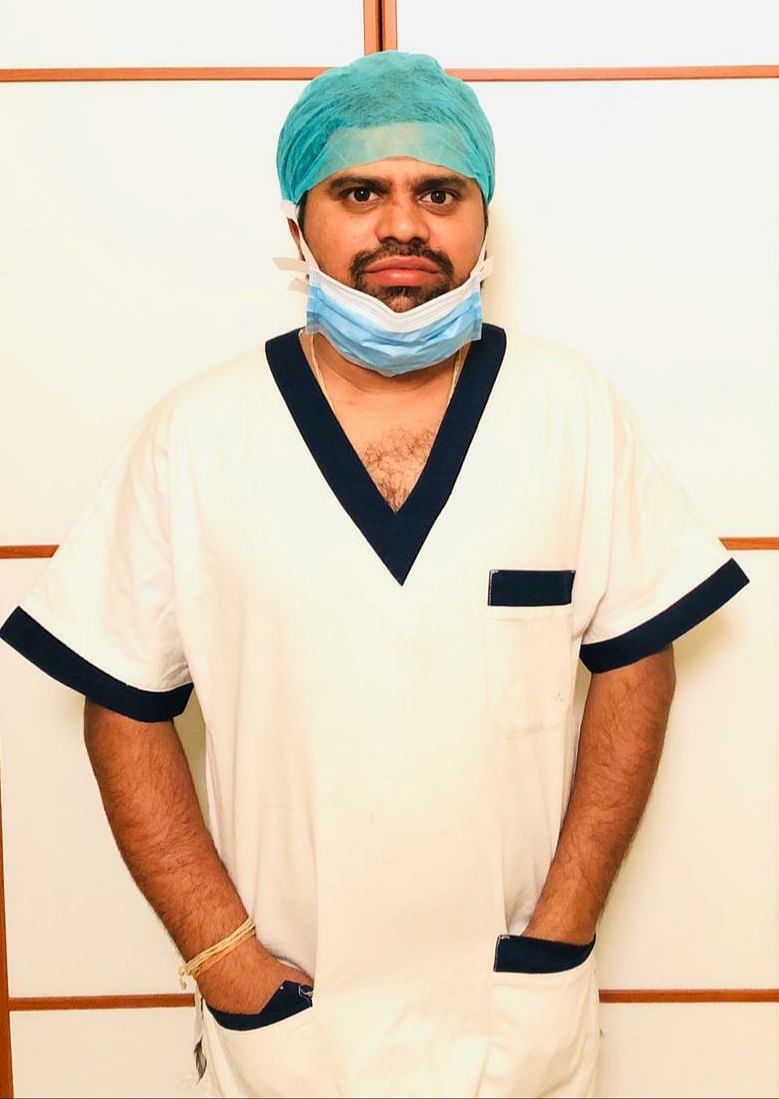
He has seen three elderly patients dying one after another in a span of just an hour during his last shift.
And, as Madhu Hemegowda prepares for another 12-hour-shift at the COVID-19 ward in a hospital in northern Italy, he knows that at least two or three of the 30 patients he and his colleagues have to take care of may succumb by the time they will be relieved for the day.
“We have been witnessing at least two or three deaths daily,” the 34-year-old healthcare professional says and then adds with a sigh: “Death is now so normal around us.”
Hemegowda, who graduated from the Government College of Nursing in Bengaluru in 2007, has been living in Italy for almost 10 years now, working as a nurse in hospitals in and around Milan. After the COVID-19 started ravaging Southern European nation early February, he has been shifted to the Rivoli Public Hospital in Turin – nearly 140 kilometers away from Milan.
What he and his colleagues have been witnessing in the “Isolation Ward” of the hospital over the past few weeks is no less than a nightmare. “We have 30 beds in our ward and all are almost continuously occupied. If a bed gets unoccupied, more often for a death than a discharge, it gets reoccupied within an hour or two,” he tells the DH over phone from Turin.
With altogether 53578 people being infected by the virus by Sunday, Italy is now the worst COVID-19 affected country after China – the “ground zero” of the pandemic.
The virus in fact already claimed more lives (4827) in Italy than in China (3267), according to the latest report by the World Health Organization.
The dance of death around him no longer rattles Hemegowda. He has seen enough of it in the past few weeks. There is no time for him even to take a pause and mourn for someone whom he could not save. The moment the monitor shows a steady line declaring yet another death, it’s the time for him to take away the ventilator and put on it someone who can still be saved.
“An 82-year-old COVID-19 infected woman was brought to our ward a few days back. Her son and daughter, who live in the United States, kept calling me, regularly enquiring about her condition. They could not come due to the travel restrictions,” recalls Hemegowda. “Finally, she succumbed and I had to tell her son and daughter that we could not save her. All that they could do for her was to call an agency here and arrange for her funeral.”
With its healthcare system already overburdened, Italian Government is now hospitalizing only the critically ill COVID-19 patients, while the ones with relatively milder symptoms are being quarantined and treated at homes. “Still, we are having a steady stream of patients coming in,” says Hemegowda, who has a post-graduate degree in Clinical Research from Sikkim Manipal University.
He also helped set up Italy Kannada Association a few years back and currently heads it as its president. He and other community leaders of late coordinated with the Embassy of India in Rome and helped several Indians, who were studying in and around Milan and Turin, to return home onboard the special Air India aircraft. He, himself, however, chose to stay back, notwithstanding the risk of contracting the COVID-19. “Yes, many other healthcare professionals took leave to avoid exposing themselves to the risk of being infected by the virus. But I did not. I thought I should do whatever I could to help people fight it out. That’s what I am trained for. Isn’t it?” His microbiologist wife Sanjana too chose to stay back with him.
Hemegowda, however, remains worried about his mother, Bhadramma MV, who is a superintendent at the Community Health Centre at M N Kote in Tumkur. His twin brother Hemanth Kumar R is a staff nurse at the Bangalore Medical College and Research Institute Super Speciality Hospital. He anxiously keeps track of the spread of the Covid-19 infection in Karnataka and rest of India – not only because both his mother and brother work in the healthcare sector, but also because he “shudders to think” how disastrous it can become for his own country if it allows the virus to spread just as it did in Italy.
“When it first started in Italy, people didn’t care much. Even after several positive cases were detected on February 21, people kept going out and partying without bothering much for social distancing that was necessary to contain the pandemic. By the time, the government has ordered lockdown in entire Italy; it (the outbreak) was beyond control,” Hemegowda says, adding: “I just hope that the government and the people of my country would not commit the same mistake.”
